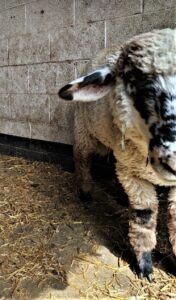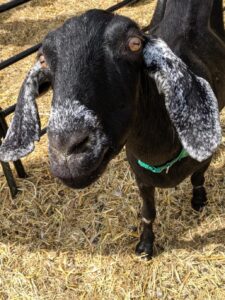Seven Simple Secrets to Totally Rocking Your Kindness for Animals
Kindness (noun): the quality of being friendly, generous, and considerate; a kind act. — English Oxford Living Dictionaries
Be Kind to Animals Month is celebrated in May to raise awareness of the importance of the life of every living being.
In the last week have you experienced an act of kindness? The impact of a kindness shared can lift your mood, ease your mind, change your outlook, and sometimes change your life. Kindness is something humanity can experience and share.
Animals can experience kindness too! They respond to positive and negative conditions and treatment. They have needs that include the desire to not suffer, just like we wish to not experience suffering. For many of us, we can make choices that directly impact our daily lives. Animals often do not have the option to make their own choices.
We have all relied on and benefited from animals at some point in our life. Take a moment and consider how animals have touched you or a loved one’s life. One positive aspect includes animals that are trained to work side by side with their human counterparts to provide comfort, aid in physical and emotional well-being, anticipate danger, maintain safety, and support day-to-day life.
Many of our communities are near natural animal habitats. Admittedly the co-existence of humans and animals presents a unique challenge. A realistic view is helpful in expanding our perspective. Both beneficial and troubling aspects are important to consider as we think about the mutual experience. By acknowledging the bigger picture, we can assess how we wish to show kindness to animals.

Kindness for animals could be expressed in many ways. The very definition of kindness in action is being friendly, generous, and considerate. Animals deserve to live a life that brings the least amount of suffering. In the process, we have an opportunity to share space with them and not cause them more harm or suffering. In some circumstances we can use kindness to sway their experiences in a positive way.
One might say a true act of kindness is not reliant upon merits of one being to another. All animals want to remain well and be healthy. They want to continue living on this earth. This includes the unlovable or the seemingly unbeneficial animals. The weight and measure of why to share a kindness might be based on a value or moral system we care about. The act of showing kindness may be the absence of any action that may cause animal suffering.
How might you increase your kindness quotient (KQ) towards animals? Any kind act may initiate more space in our life to become more aware of the world outside of ourselves. Including our personal impact on the lives of animals. How you choose to expand how you show kindness is up to you. Any change can make a difference. Don’t let an all-or-nothing mentality limit your process. Every little thing can make a difference for an animal.

Safety first! As you find more ways to share kindness with animals, be safe. If you find a particular animal interest, find specific resources that focus on what you care about. If you see an animal in harm’s way, reach out to the appropriate resources. Do not take unnecessary risks. The act of making referrals is a show of kindness. Remember to honor your own physical and mental health first.
Seven Simple Steps to Kindness Potential:
- Keep your eyes open: If you see something, do something. When you notice a need or an issue surrounding animal welfare, reach out to the appropriate resources. Do something to bridge the gap between suffering and safety for an animal.
- Choose cruelty-free products: When you shop, seek out products that do not increase animal suffering. Look for companies that do not test products on animals.
- Support animal rescues: The operation of rescues relies on help from members of the community. Find a rescue that personally moves you to donate time or money. Even if you are unable to provide money or physical labor, there is likely to be something you can offer. It never hurts to ask. You can offer your skills and time.
- Explore meatless meals: Select plant-based meals and plant proteins. Go vegetarian or vegan for one day a week. Try fixing meals without animal derived ingredients. Always talk to your doctor about significant changes to your diet.
- Buy faux materials: As much as possible, skip buying animal related clothing options, such as leather, wool, and cashmere. Educate yourself about how certain products affect the welfare of animals.
- Offer to walk or watch an animal: Be available to assist family members or neighbors who may need a helping hand. Kindness will help both the animal and their human.
- Adopt: If you are looking to add a pet to your household, consider adopting an animal in need. Research and ask questions. Let the kindness of your heart be led by facts and information.

Animals Helping People
Animal Assisted Therapy Programs Colorado: animalassistedtherapyprograms.org/
Hooves & Heroes: hoovesandheroes.org/
Animal Rescues
Colorado Human Society: coloradoanimalrescue.org/
Animal Rescue of the Rockies: arrcolorado.org
ASPCA: aspca.org/
Sanctuaries
Broken Shovels Colorado: brokenshovels.com/
The Wild Animal Sanctuary Colorado: wildanimalsanctuary.org/
Luvin Arms Animal Sanctuary: luvinarms.org/
Information:
Be Kind to Animals Month – May 2023: nationaltoday.com/be-kind-to-animals-month/